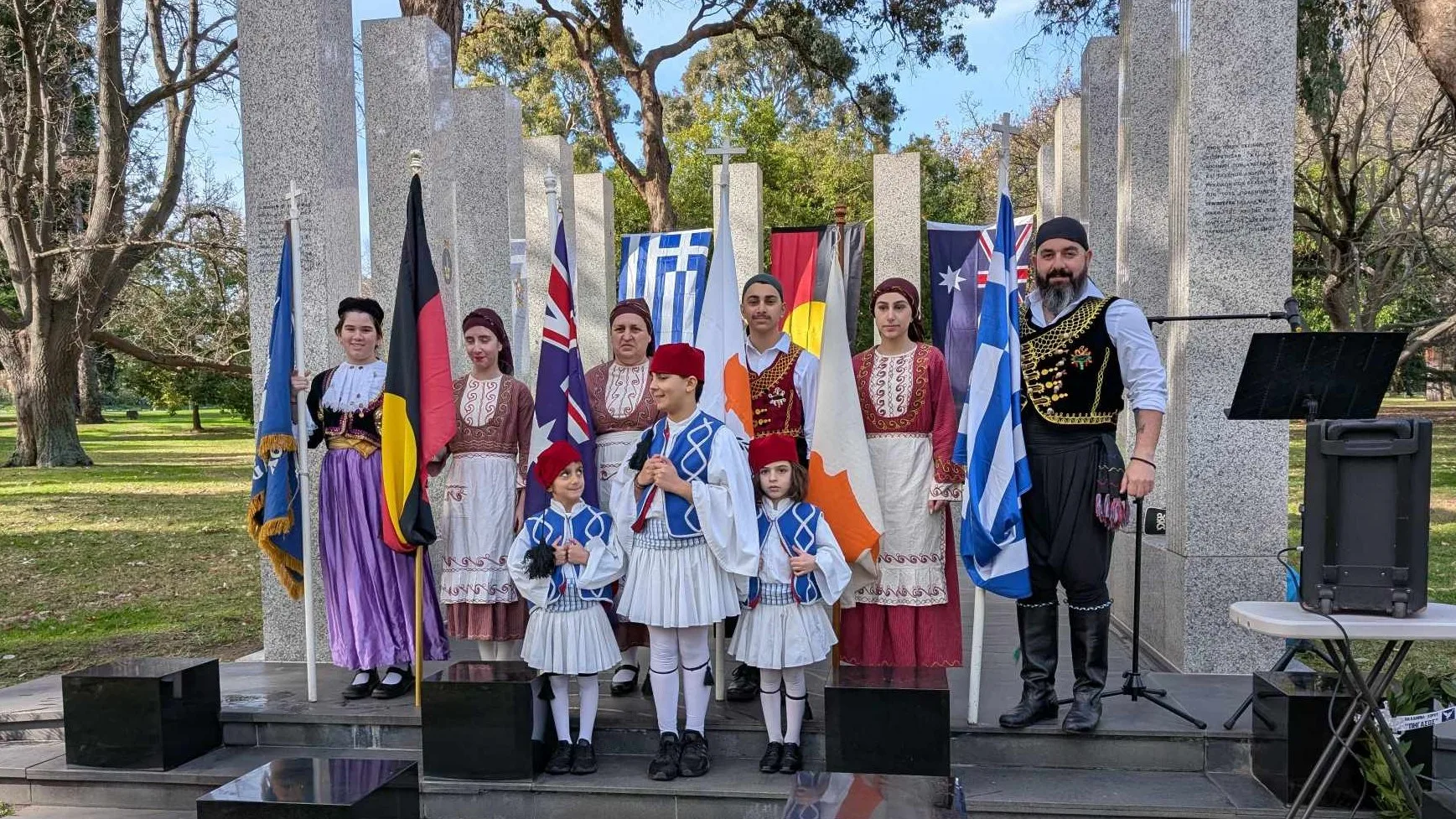On Sunday, July 20, Melbourne’s Cypriot community gathered in solemn remembrance, marking 51 years since the 1974 Turkish invasion of Cyprus.
From a wreath-laying ceremony at the Australian Hellenic War Memorial to passionate speeches and stirring poetry at the Cyprus Community Centre in Brunswick, the unifying cry rang out: “Δεν ξεχνώ. I do not forget.”
The day began with a moving tribute at the memorial, following a morning liturgy at St Efstathios Greek Orthodox Church in South Melbourne. Around 50 people stood quietly in the crisp winter sun, awaiting Father Kyprianos of Forest Hill to lead a short prayer. Children from the Pegasus Dance Troupe stood proudly, waving Greek and Cypriot flags, small hands carrying the weight of memory.
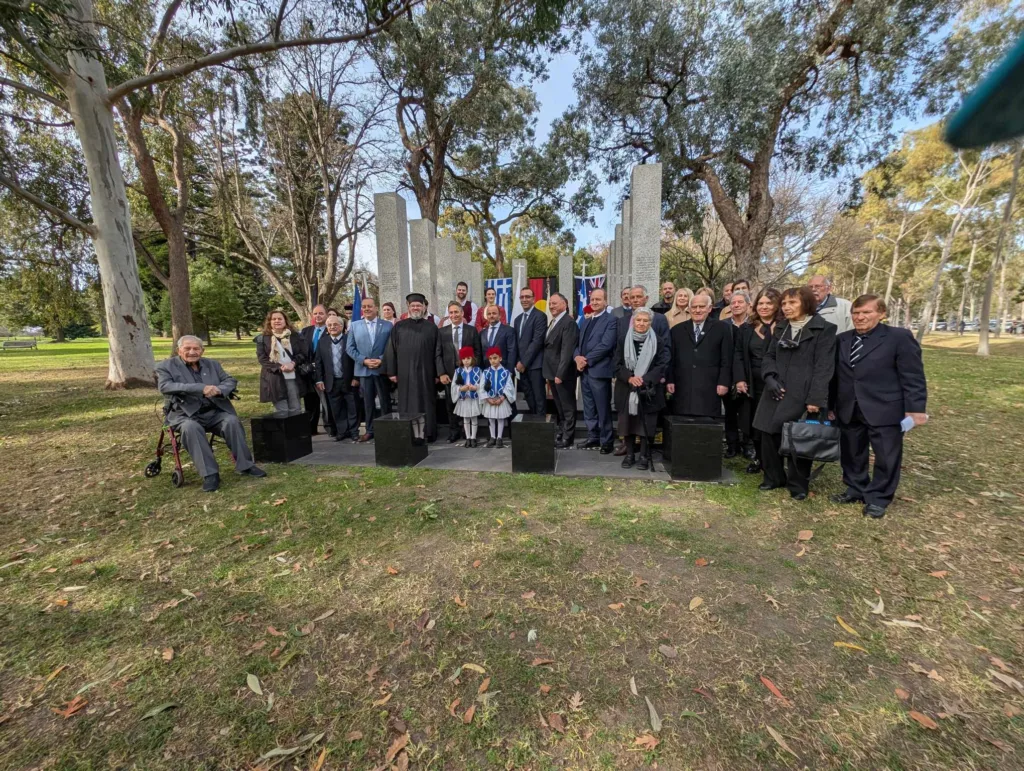
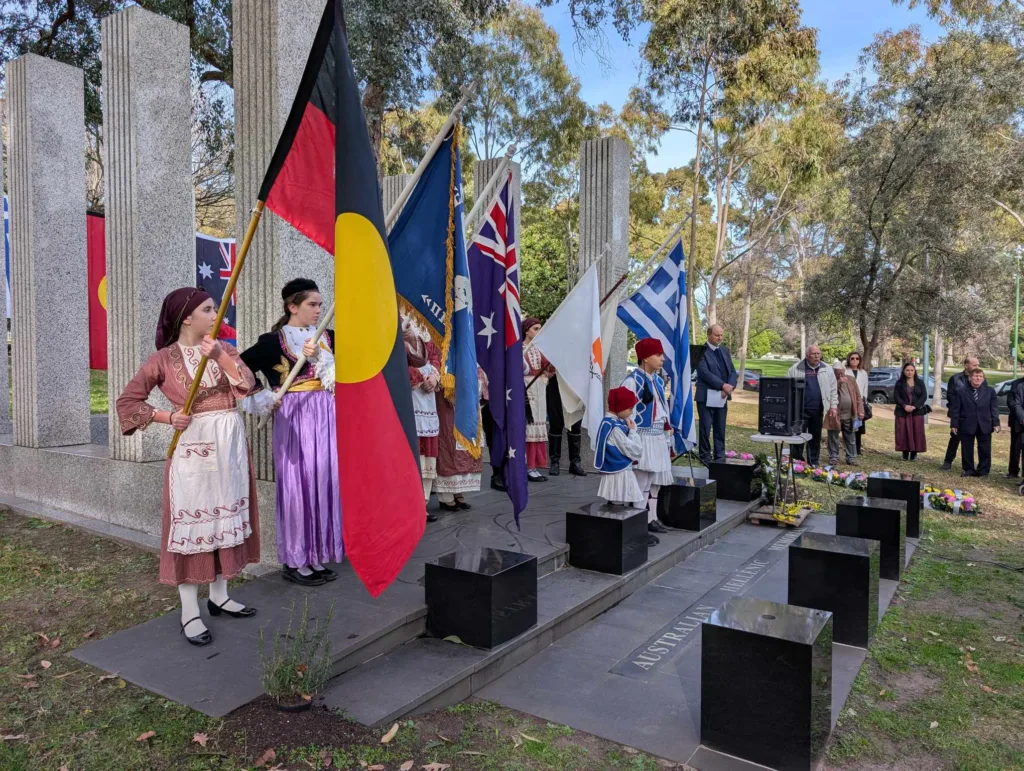
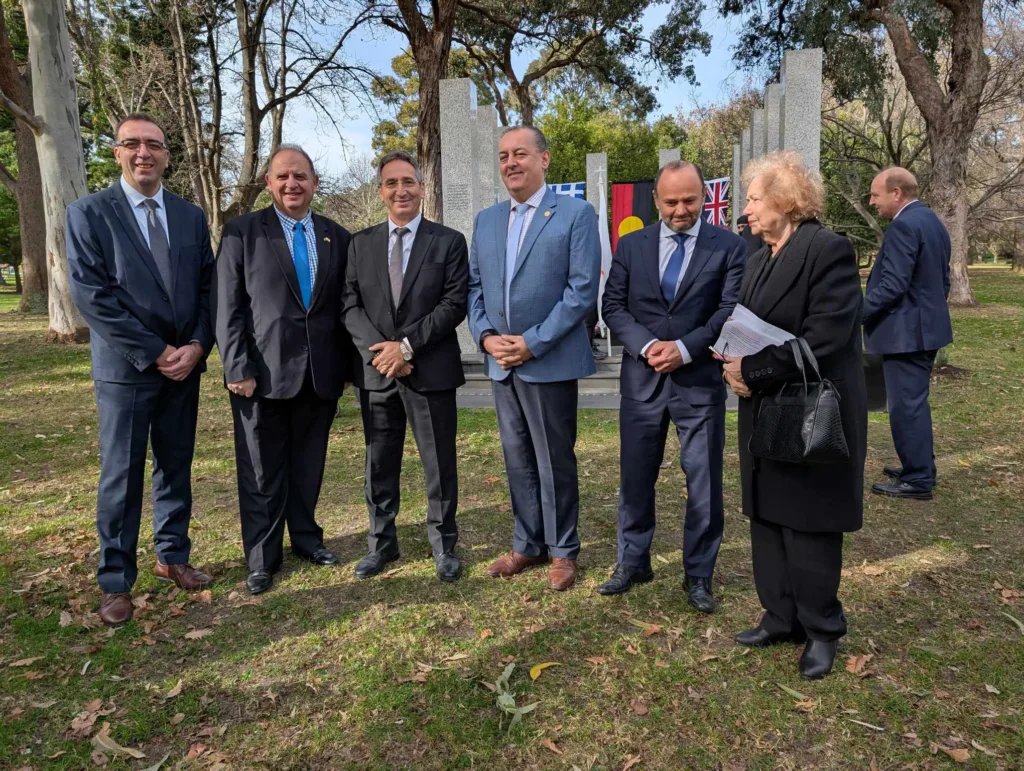
Recently returned from Cyprus, Loukas Nikolaou handed out pamphlets on Kyrenia to the crowd. “A reminder,” he told The Greek Herald, “of what was lost and must never be forgotten.”
SEKA Victoria’s General Secretary, John (Yiannis) Milides, delivered an impassioned address, recalling that “scorching summer of 1974” from his own experience as a 15-year-old.
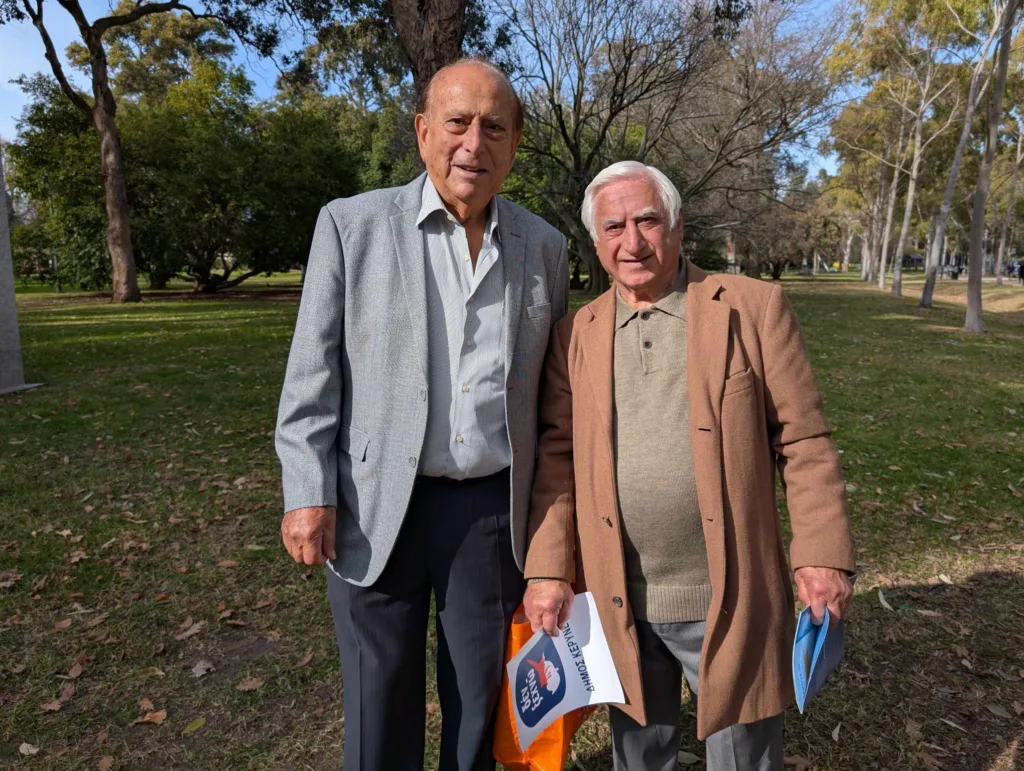
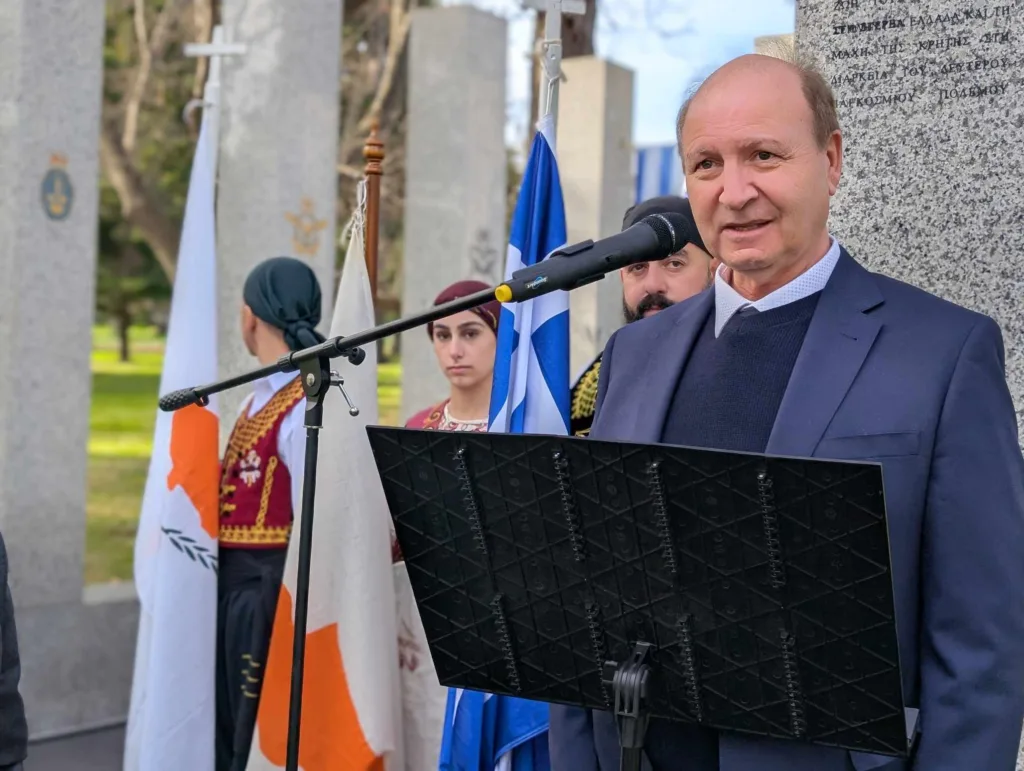
“I woke up to the deafening sound of jets. Turkish warplanes were flying over, shooting, bombarding, launching rockets… Every year, on this day, those memories return. Not just for me. For all of us who lived through that horror,” Milides said.
He also acknowledged the traditional owners of the land.
“We are standing on the land of the Wurundjeri people,” he said, drawing a stark comparison. “I imagine they, too, one day woke up to the sight of strange people in uniforms, holding guns. That was their first contact. They, too, endured unimaginable hardship.”
Stavroula Gonopoulou, widow of SEKA’s first secretary Kostas Gonopoulos, reminisced about a shared struggle that shaped generations: “From school days, I remember dressing girls in black to represent Cyprus. We are one, Greek and Cypriot, united.”
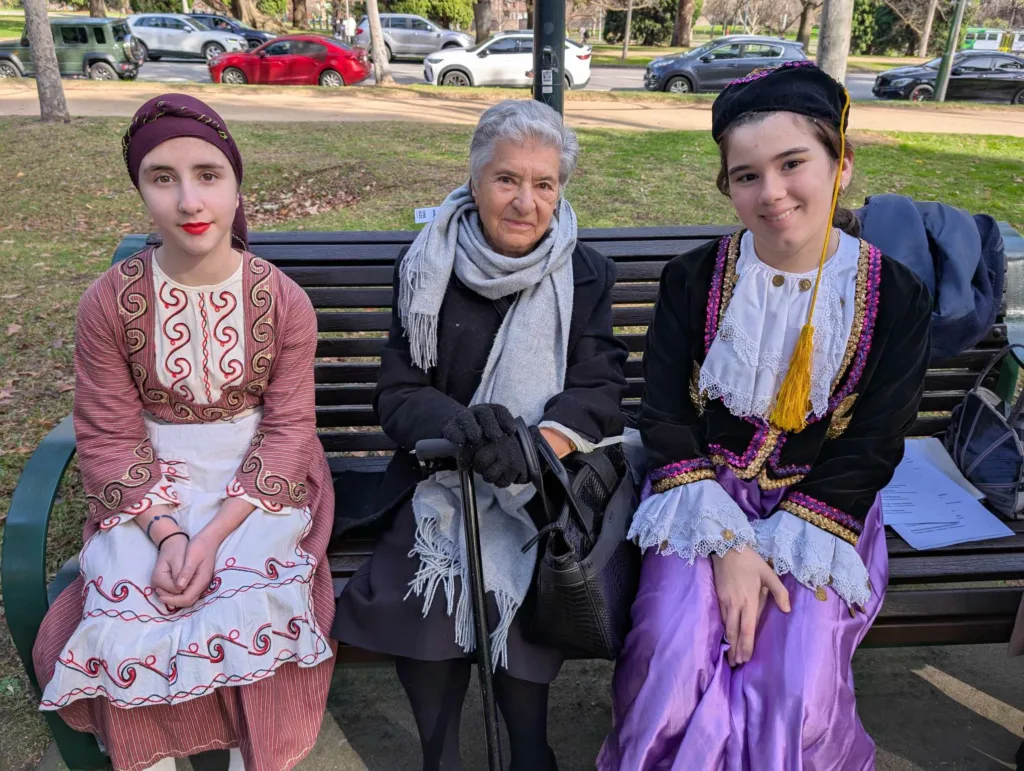
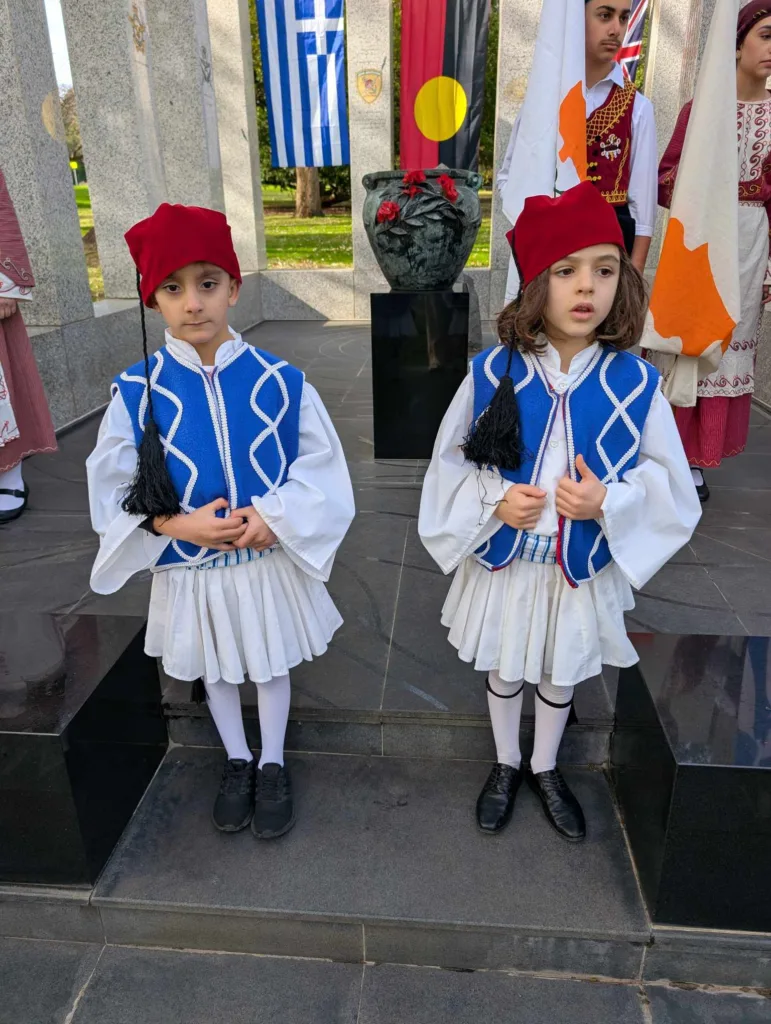
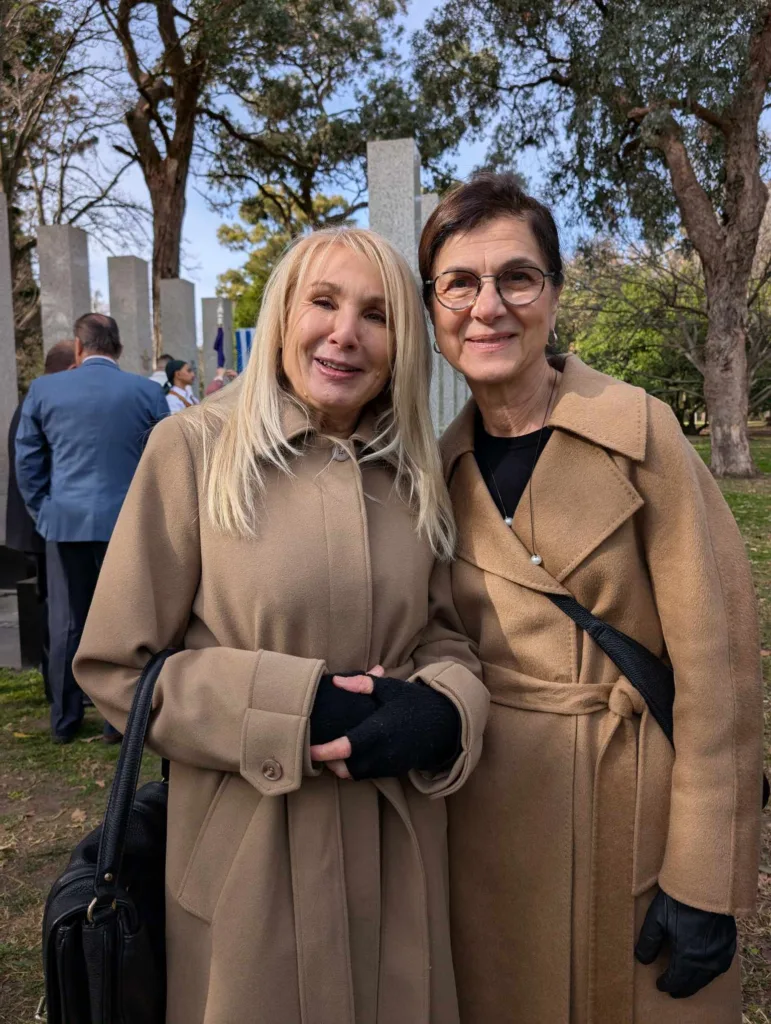
St John’s College student Haritini Trifonos, 11, has never set foot in Cyprus, but feels the connection.
“Even though I haven’t been to Cyprus, it’s in my heart,” she told The Greek Herald. “Maybe if the invasion never happened, I would have been born in Cyprus. Not so many people would have been killed. Cyprus would be whole.”
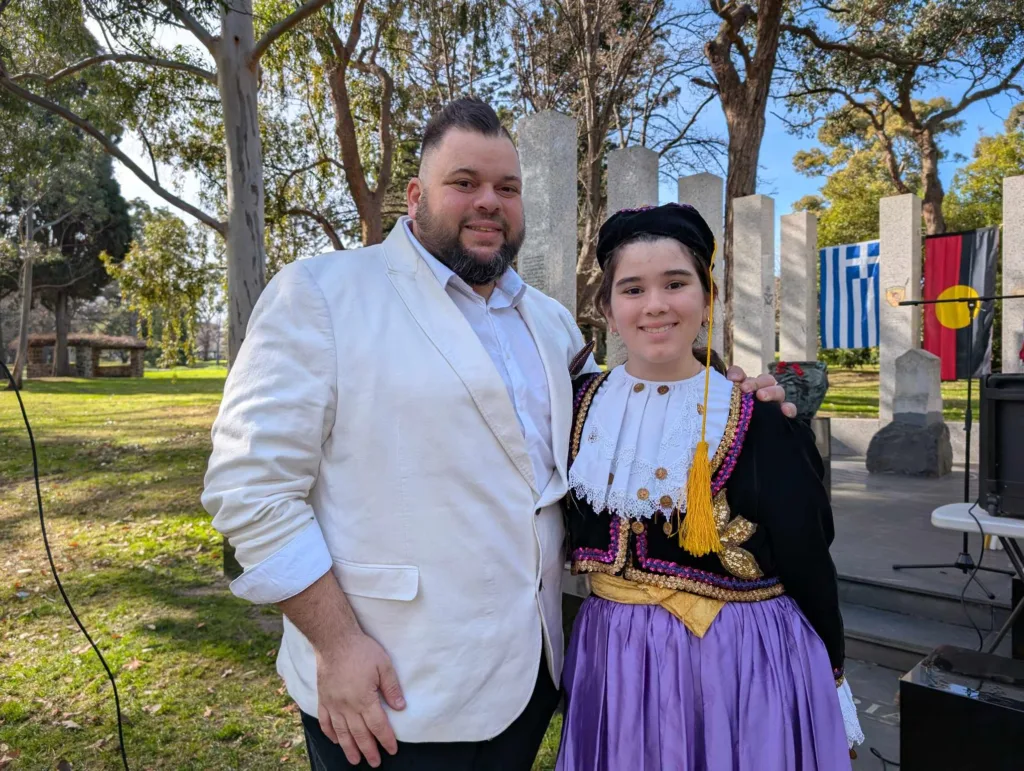
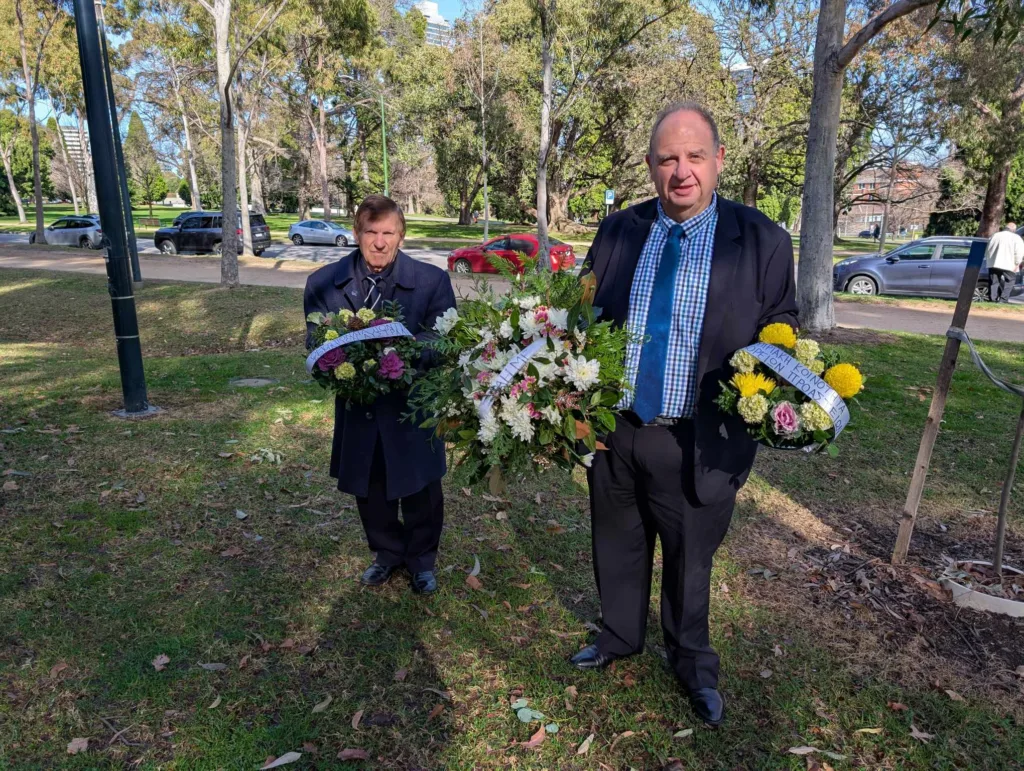
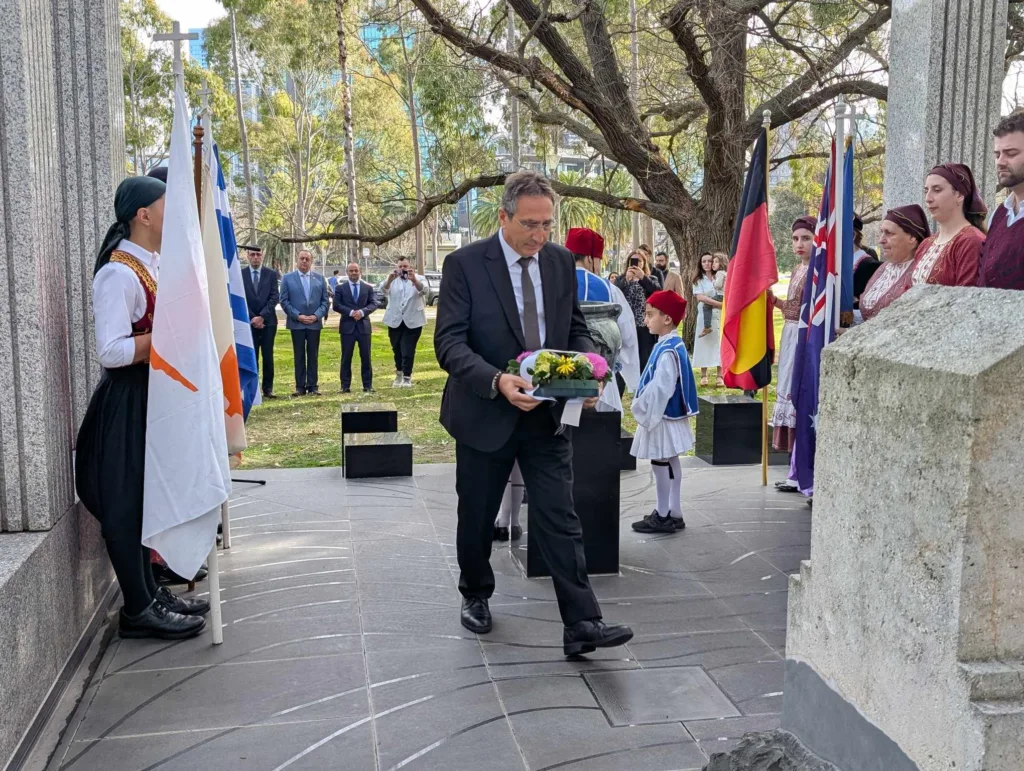
The second part of the commemoration continued at the Cyprus Community Centre in Brunswick, where Milides held up a black-and-white photo of Adamos on his phone. The first soldier killed in the 1974 invasion, the young man was executed for refusing to fire on his own people.
“Our memory is the only punishment he will ever face,” Milides said, before reading a powerful poem dedicated to the heroic special forces of Pentadaktylos where men like Adamos fought.
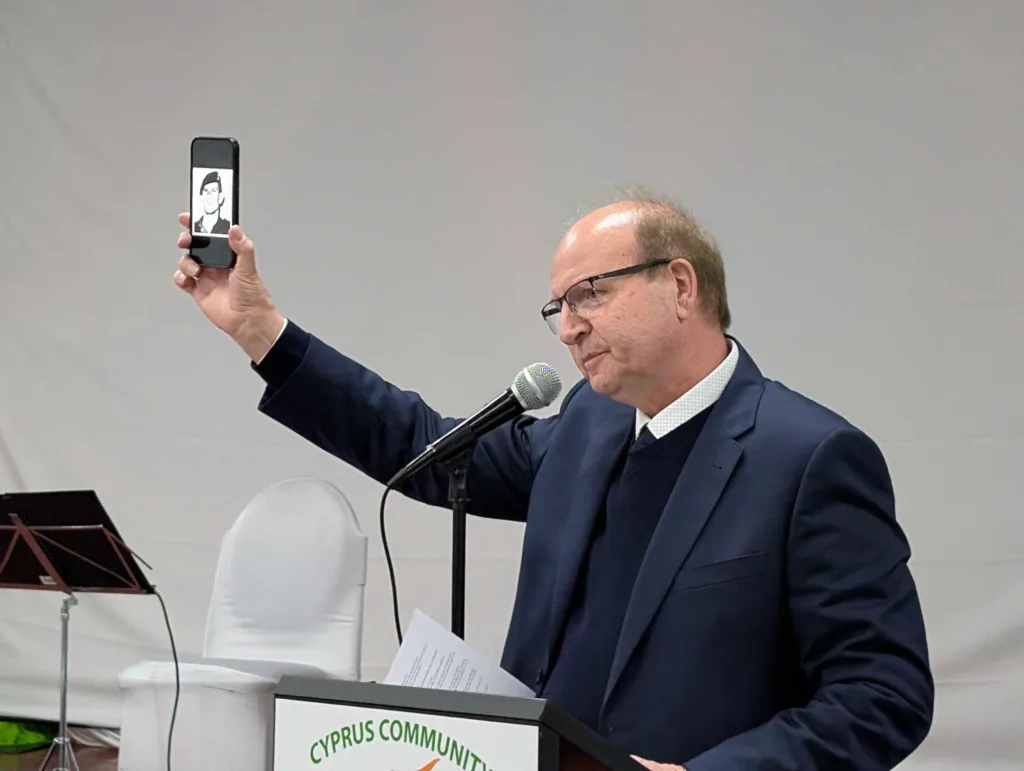
Other community leaders followed with unflinching statements.
SEKA President Tony Kyriakou railed against the Green Line and ongoing occupation, rejecting any two-state solution. John Christou from the Northern Suburbs Cyprus Community warned of the “Islamisation of the north” and the erasure of Christian heritage through church destruction.
Andreas Grigoriou, Cyprus’ government representative, praised the diaspora for preserving traditions.
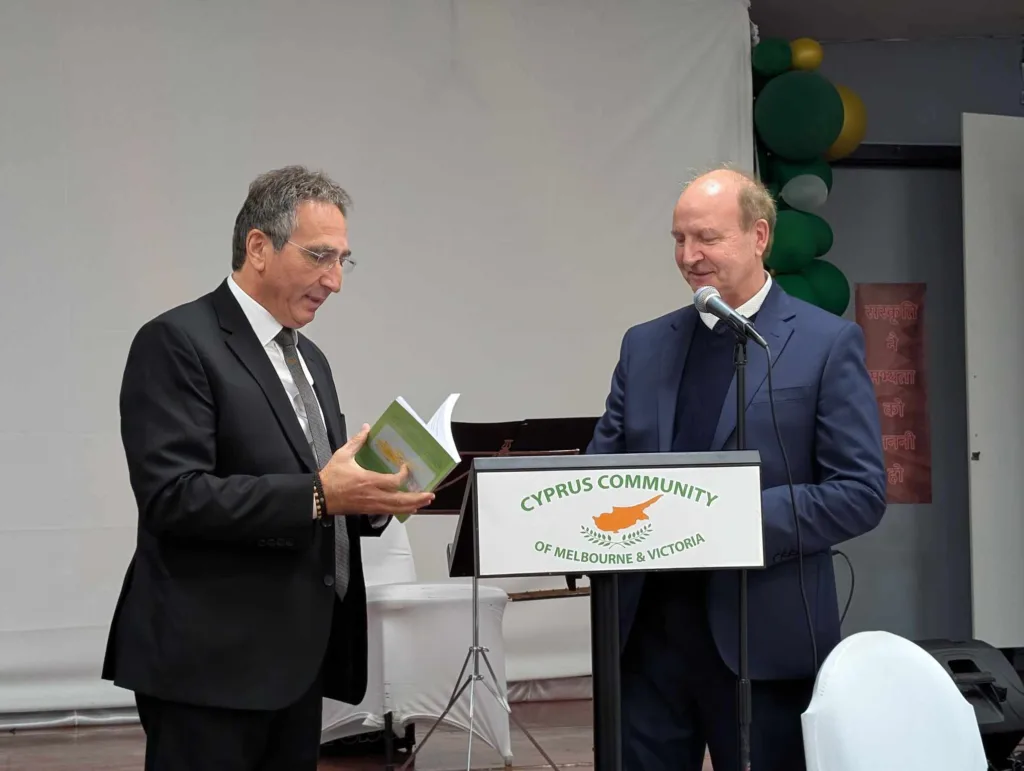
High Commissioner Antonis Sammoutis reminded attendees of the power of unity – and numbers, while remembering a song from his childhood: “If they are thirty, we will be forty. If they are fifty, we will be sixty. If needed, we will be more.”
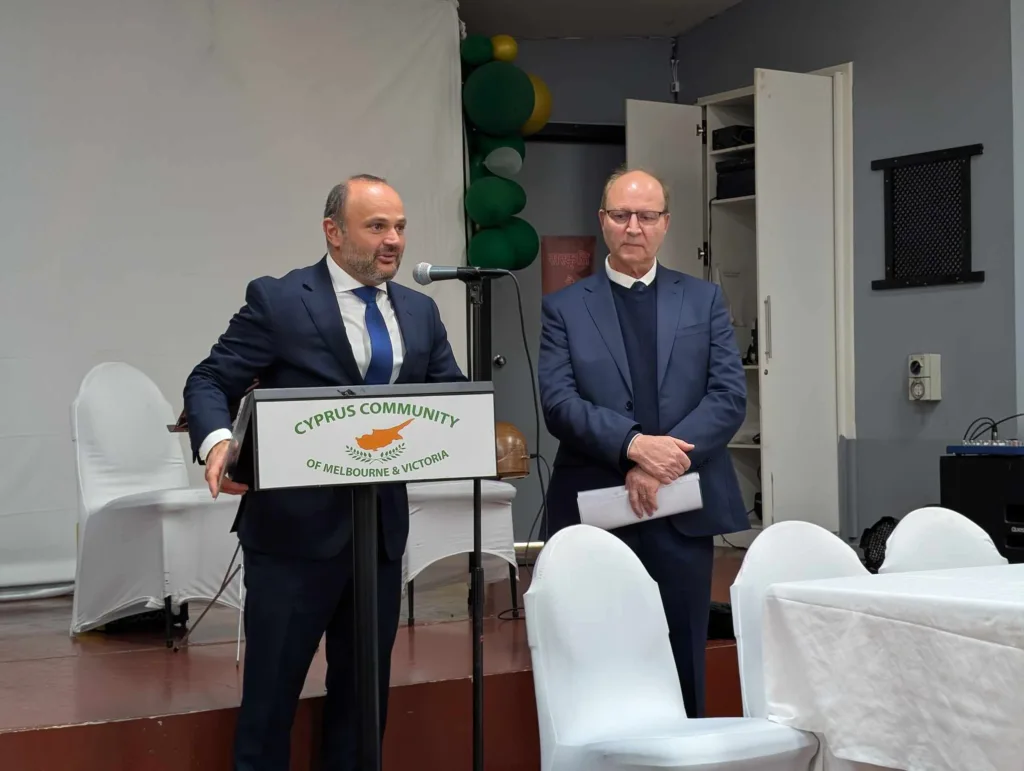
Students Savina Koumidis and Georgia Vardavakis added a generational voice to the pain, sharing how the invasion’s trauma lingers in their families’ stories.
Artworks were scattered on the tables surrounding attendees. On the back wall were works by Adamantios Diamantis, the father of modern Cypriot painting. It was displayed with quiet reverence. His grandson, Gregory, was present for the occasion.
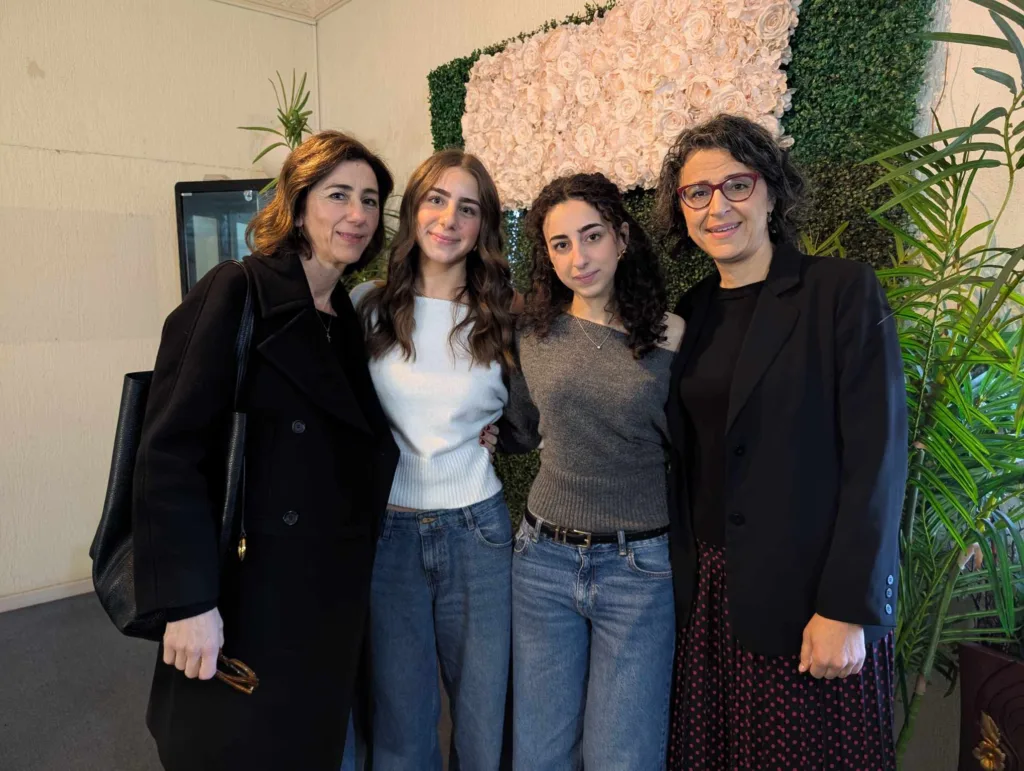
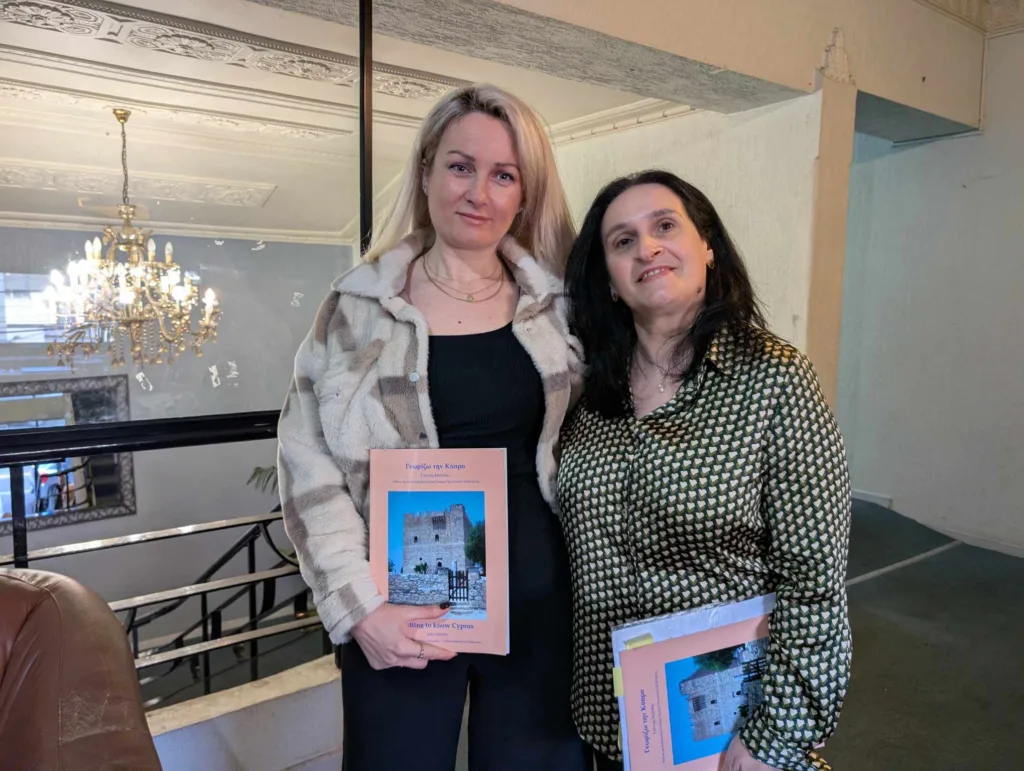
Educators Anthi Tzani and Vicky Petala presented Milides’ bilingual book, Getting to Know Cyprus.
“Ask for a PDF and I’ll send it. There is no copyright,” Milides said, underscoring the urgency of passing on cultural knowledge. He also urged those present to sign a petition calling on the Australian Government to condemn Turkey’s continued occupation and enforce UN Resolutions 541 and 550.
Yet beneath the pride and unity, unease lingered, though softened by the lovely music of Evangelia Baxa and George Sevastakis.
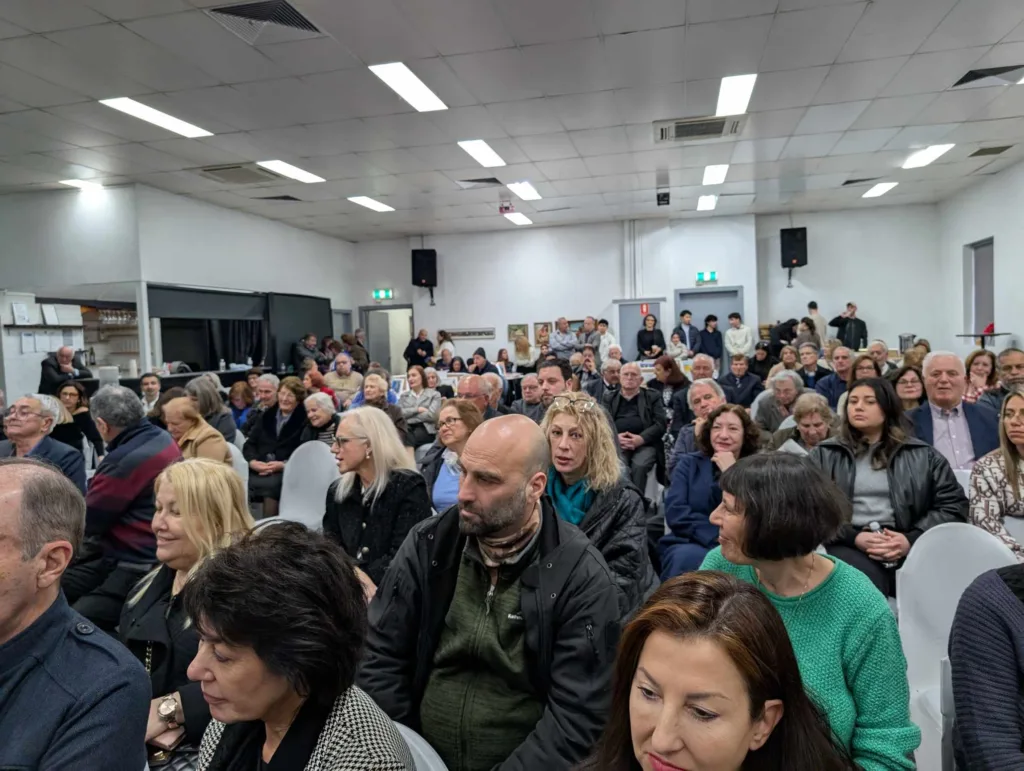
“I do not forget. But I fear we are being forgotten,” said one attendee, voice low but steady.
Community members remember the pain of the event with aching clarity. The real question is: Can memory be transformed into action before the echoes of injustice fade into silence?
*All photos copyright The Greek Herald / Mary Sinanidis
